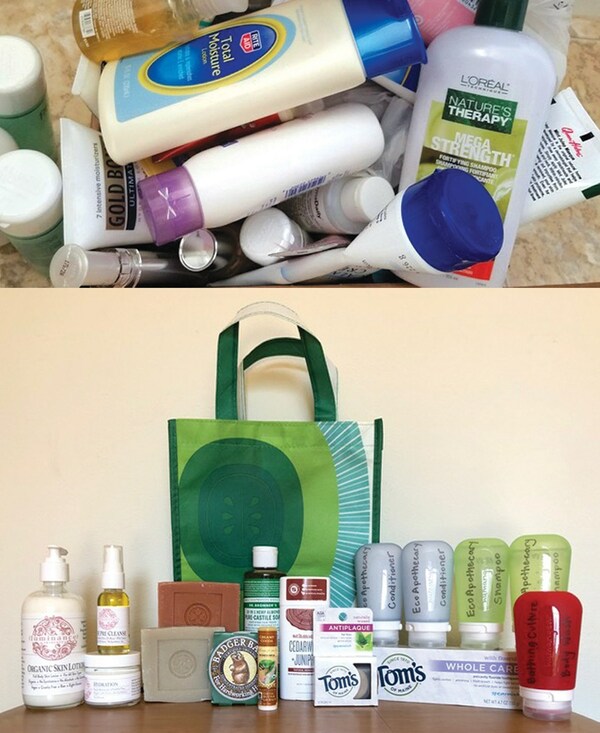Pioneering Research Led By Breast Cancer Survivors Links Phthalates and Parabens In Personal Care Products To Higher Risk of Breast Cancer
18 Oct 2023
San Francisco non-profit, Breast Cancer Over Time, unveils findings from community-based study.
SAN FRANCISCO, Oct. 18, 2023 /PRNewswire/ -- Breast Cancer Over Time (BCOT), a non-profit organization created and controlled by breast cancer survivors, has released findings from an innovative research study reporting a link between phthalates and parabens found in personal care products and an increased risk of breast cancer.
The study, conducted in collaboration with experienced breast cancer researchers at the California Pacific Medical Center Research Institute, aimed to assess the impact of reducing specific chemical exposures on breast cells.
Continue Reading
"Breast cancer survivors' groundbreaking study reveals parabens and phthalates linked to higher breast cancer risk."
Tweet this

Preview
Source: PRNewswire
Products devoid of parabens and phthalates were swapped as replacements for study participants' current personal care products, which contained those estrogen-stimulating chemical ingredients.
Healthy women were recruited to donate normal breast cells for comparative analysis before and after discontinuing use of personal care products containing parabens and phthalates, which are estrogen-like manufactured chemicals. BCOT provided participants with replacement products free of these chemicals to use for the 28-day study duration. The breast cells, collected through needle biopsies, were analyzed and revealed a reversal of cancer-associated characteristics within the cells of participants who used paraben and phthalate products. Additionally, a reduction in metabolites of these chemicals was observed in their urine.
The study results have been published in the scientific journal, Chemosphere ("Reduction of daily-use parabens and phthalates reverses accumulation of cancer-associated phenotypes within disease-free breast tissue of study subjects"). These findings demonstrate the potential for reducing breast cancer risk by minimizing exposure to hormonally active chemicals. The recent publication of this research prompted Environmental Health News to present an accessible interpretation of the study's results, titled "Get phthalates, parabens out of the bathroom drawer to reduce breast cancer risk: Study" for non-scientific audiences.
Polly Marshall, Executive Director of Breast Cancer Over Time and Community Principal Investigator of the study, emphasized the underlying motivation for the research, stating, "As survivors, our mission is to prevent breast cancer in our children and future generations by focusing on causation research, so that cancer never occurs in the first place. Marshall, a survivor and mother of two, drew inspiration from her weekly support group of women living with breast cancer, whose experiences influenced and shaped the study.
The study sheds light on the carcinogenic effects of estrogenic overstimulation in human breast tissue. Personal care products such as shampoo, lotion, makeup and fragrance often contain parabens and phthalates, which exhibit estrogenic activity. Unlike research using animal models, this study focused on understanding how reducing real-time exposure of humans to these estrogen-like chemicals in personal care products decreases breast cancer risk factors in their breast tissue, potentially lowering their risk of developing breast cancer.
Emilia Omerberg, a study participant stated… "Both my mother and grandmother had breast cancer, so I have witnessed the pain of this disease firsthand. Is it inevitable that I will get it too or is there something I can do to help prevent it? Does my deodorant and body lotion increase my risk?" These unanswered questions motivated BCOT to publish a brochure entitled "What Everyone Should Know: What You Put On Your Body Could Increase Your Cancer Risk."
The research results have far-reaching implications for breast cancer prevention and underscore the importance of making informed choices regarding personal care products and cosmetics.
Ms. Marshall concluded, "It is essential to replicate this study and pursue additional research into breast cancer prevention, building upon this innovative model that investigates the impact of environment exposures on normal human breast tissue. Our commitment to the next generation demands it."
SOURCE Breast Cancer Over Time
For more details,please visit the original website
The content of the article does not represent any opinions of Synapse and its affiliated companies. If there is any copyright infringement or error, please contact us, and we will deal with it within 24 hours.
Organizations
Indications
Targets
-Drugs
-Chat with Hiro
Hot reports
Get started for free today!
Accelerate Strategic R&D decision making with Synapse, PatSnap’s AI-powered Connected Innovation Intelligence Platform Built for Life Sciences Professionals.
Start your data trial now!
Synapse data is also accessible to external entities via APIs or data packages. Empower better decisions with the latest in pharmaceutical intelligence.


